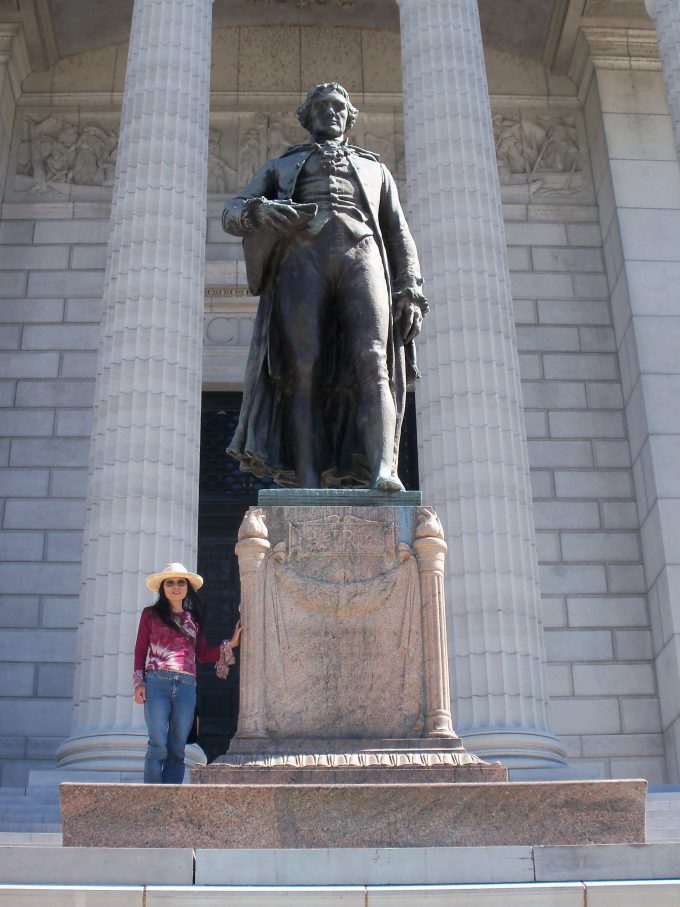
Sunday, 26 November 2017
…for which I was appointed a preacher and an apostle—I am speaking the truth in Christ and not lying—a teacher of the Gentiles in faith and truth. 1 Timothy 2:7
“For which” is speaking of that which he just stated in verses 5 & 6 – there is one God; there is one Mediator between God and men, the Man Christ Jesus; and Christ Jesus gave Himself a ransom for all, to be testified in due time. This explains Paul’s “For which.” It is these things for which he then acknowledges that “I was appointed a preacher.”
The word “preacher” here is literally “a herald” or a “town crier.” In essence, he was one who proclaimed critical news to the public, such as at a town gathering. This is exactly what he did as is recorded in Acts. At times, the entire town would show up at a synagogue to hear his words. When in Athens, he spoke at the public meeting at the Areopagus. Paul also states that he was appointed “an apostle.”
Paul’s calling is recorded in Acts 9, he was called personally by the risen Christ, and he is specifically said to be designated as the apostle to the Gentiles on several occasions in the New Testament. In Galatians 2, he is contrasted to Peter, whose apostolic ministry was specifically to the Jews –
“But on the contrary, when they saw that the gospel for the uncircumcised had been committed to me, as the gospel for the circumcised was to Peter 8 (for He who worked effectively in Peter for the apostleship to the circumcised also worked effectively in me toward the Gentiles)…” Galatians 2:7, 8
After making his claims of authority concerning his ministry, he then adds in, “I am speaking the truth in Christ and not lying.” This is a claim similar to the one he makes in Romans 9:1. He is herein making a solemn oath, and a resounding declaration, that what he says is the truth. This statement actually shows us that this letter is more than a personal letter to Timothy, but one which was intended to be read by all in the church.
Timothy was already aware of these things: but those in the church at Ephesus, where Timothy was, were probably arguing against his apostolic authority, saying that he was converted after Christ’s death. Because of this, it would be argued that he couldn’t have been called by Christ. But Paul’s call was supernatural. His ministry as an apostle was, as he says in 1 Corinthians 15:8, “as one born out of due time.” The need for stating this apostolic authority openly in this letter probably finds its source in the Judaizers & false teachers referred to early in chapter 1. They had a beef against Paul and worked to diminish his authority in the eyes of others.
Paul then continues with the words, “a teacher of the Gentiles.” This is probably what irritated the Judaizers the most. Paul was teaching the Gentiles their freedom in Christ. They wanted the Gentiles to look to all things Jewish through “fables and endless genealogies” which were intended to highlight them as a superior line, deserving of emulation. Paul completely refutes this nonsense throughout his letters. What the Gentiles have to offer is equal to that of the Jews. In fact, throughout the church age, it has been the Gentiles who have faithfully carried the untainted gospel of freedom from works of the law. It is they who have sent missionaries and established churches throughout the world. It is they who have, for 2000 years, searched out the word, faithfully translated it to almost all languages on the planet, and have held it in the highest of esteem as the true and undefiled word of God. This is the legacy of Paul, who here defends his apostolic ministry in the presence of God with a firm and sure vow. He then finishes that his teaching is “in faith and truth.”
This combination of words concerning his teaching is found only here. Vincent’s Word Studies says about it that, “The phrase must not be explained in true faith, nor faithfully and truly. It means that faith and truth are the element or sphere in which the apostolic function is discharged: that he preaches with a sincere faith in the gospel, and with a truthful representation of the gospel which he believes.” Paul has completely contrasted himself to the false teachers of Chapter 1, and he has set the example for all pastors to follow in the future.
Life application: The closer one sticks to the word in their teaching and preaching, the finer of a teacher and preacher of the word they are. Superfluous words of oration do very little to build up and edify others in proper instruction of the word of God.
Lord God, Your word is given and it is a marvelous gift of love and instruction. How sad it is to go to a church and hear a sermon which has lovely oration, but which doesn’t really bear on what Your word says. The closer a preacher sticks to the word in their message, the more competent the congregation will be in their own walk with You. Help each of us to reject flowery sermons which edify for a moment, and to search out a word which analyzes and explains Your word carefully and competently. Amen.




